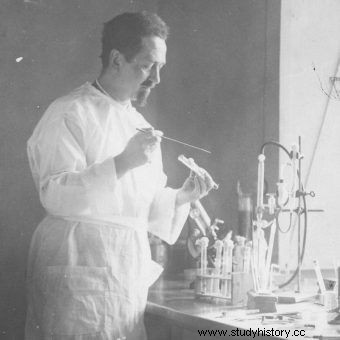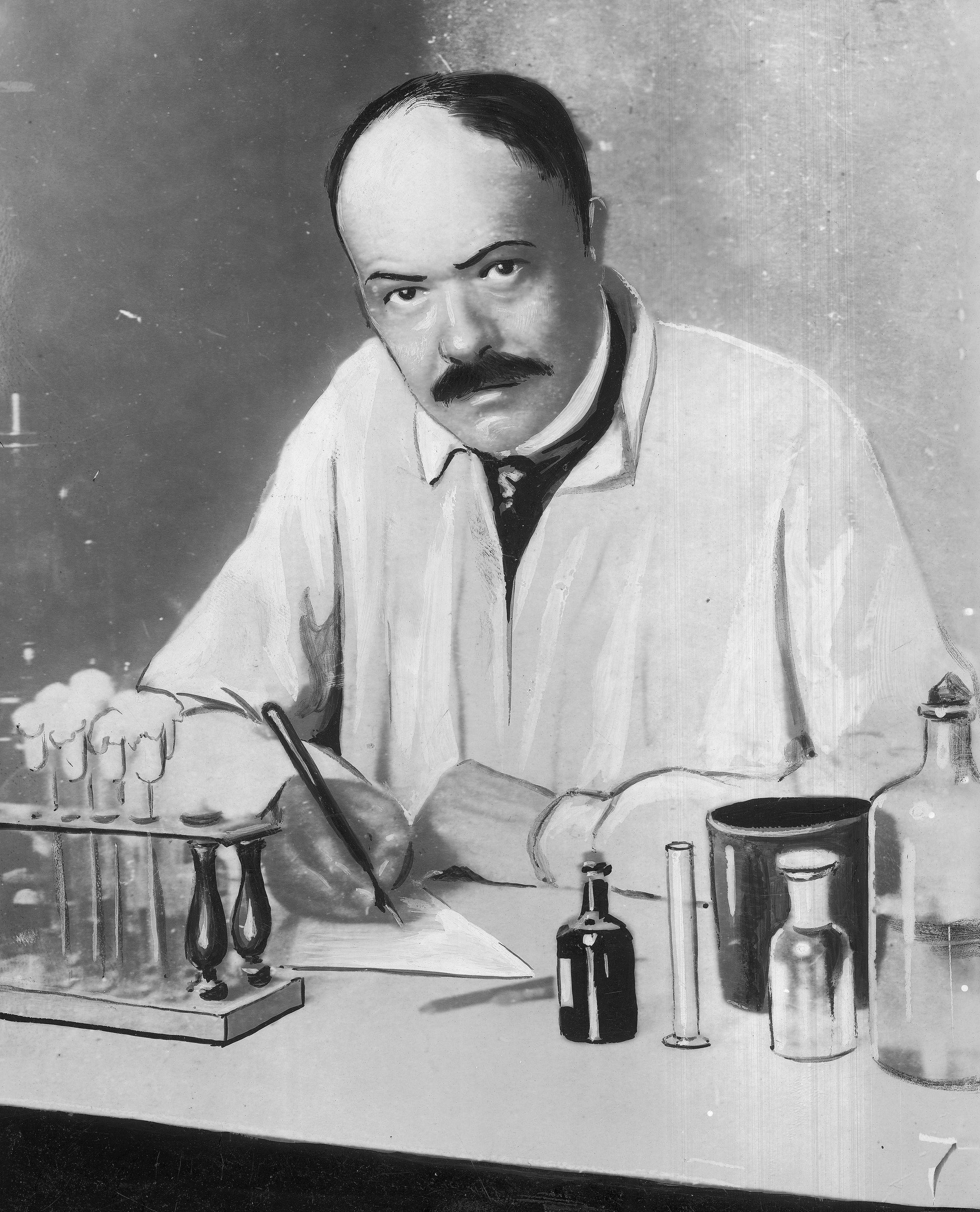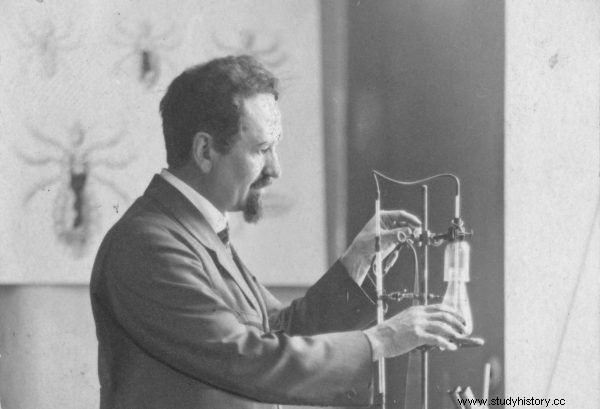He made a revolution in medicine, he saved millions of people from certain death, and the whole world talked about his achievements. He was nominated for the Nobel Prize many times for his successes in fighting typhus. So why didn't he finally get the award?
“The homeland is chosen once. I made my choice in 1918, ”said the professor when, in July 1941, the commander of the SS and police in the Galicia District of the General Government, General Fritz Katzmann, offered him a reichslist to sign.

Why did Rudolf Weigl not receive the Nobel Prize?
In return for putting his name on the document, the scientist was to receive his own institute in Berlin, better equipped than the Lviv facility he managed. In addition, the Nazi promised him support from the Third Reich in the Nobel Committee . The proposal was tempting, especially since one of the consequences of the refusal could have been the sharing of the fate of the professors murdered a few days earlier in the Wuleckie Hills. Nevertheless, Weigl did not accept it.
With the heart and mind of a Pole
This decision cost him a lot. Paradoxically, if in 1941 he agreed to become a German, he would probably be mentioned among Polish Nobel laureates today. At that time, for over a dozen years, there had been talk of Rudolf Weigl's candidacy for this prestigious award. He had enormous support in the scientific community - only in the years 1930–1939 he was nominated 8 times!
However, he also had above-average bad luck. First, in 1928 the Nobel Prize was "cleared" from under his nose by a Frenchman named Charles Nicolle which proved that typhus germs are spread by lice. When Weigl announced two years later that he had developed an effective vaccine against this deadly disease, it was judged that he could not receive the award because it could not be awarded "for the same" a second time. Yet even Nicolle himself emphasized the importance of the competitor's achievements.

In 1928, Weigel was won the Nobel Prize under his nose by Charles Nicolle from France.
In the following years (except in 1935, when he was not nominated), the Lviv professor also had to get along with the taste, because the distinction was awarded to someone else each time. A real chance to join the ranks of Nobel laureates appeared only during the Nazi occupation, but it was associated with renunciation of Polishness.
Weigl could not do it, although - interestingly - not even a drop of Polish blood flowed in his veins . He was the son of an Austrian and a Czech woman, and he began to learn Polish only at the age of several years. Nevertheless, he felt Polish, so he sent Katzmann away with the receipt.
“The threats of the German did not impress him much. He replied that in the event of their implementation, he would become another Polish martyr, which, given his position, would not be particularly convenient for the Nazis, ”describes Sławomir Koper in his latest book, Piekiełko nad Wisłą. Scenes from the life of the Polish elite under occupation ”.
Career crossed by rumor
Weigl then missed a chance for a prestigious award, in a way on his own request. For the second time, the real possibility of receiving the award appeared shortly after the war. Nobody had any doubts at that time about the revolutionary nature of Weigl's discovery. His vaccine saved millions of lives (and he himself also about 5,000 employees of his institute who were "unmovable" with the professor's pass).
However, the mere fact that the scientist - voluntarily or not - produced the vaccine primarily for the Wehrmacht, was enough for some to consider him a collaborator. And so for the second time Weigl's chance for a well-deserved Nobel was torpedoed. As Sławomir Koper emphasizes in the book Piekiełko nad Wisłą:
No attention was paid to the fact that due to employment at the Weigl Institute a few survived the occupation thousands of people, including many prominent figures from Lviv's scientific and cultural world. The fact that the professor's associates secretly delivered the vaccine to ordinary inhabitants of Polish cities and smuggled it into the ghetto was also ignored. (not only from Lviv).
The rumor, spread in 1946 by jealous competitors, of Weigel's alleged collaboration once and for all thwarted his chance for the Nobel Prize and inhibited the brilliant career of a scientist. Mariusz Urbanek, in the professor's biography published last year, relates:“It began with a dispute over who will produce a vaccine against typhus in the People's Republic of Poland. Weigl believed that he, but the authorities of the new Poland had other plans. ”
Communist officials appointed Stefan Kryński (a former associate of the scientist from Lviv) and Zdzisław Przybyłkiewicz, a young doctor of biology from the Jagiellonian University. And it was the latter's habilitation thesis that sparked the frenzy. Weigl - as a reviewer - assessed it negatively. The Krakow researcher has never forgiven him.

Despite saving millions of lives, Weigl never won a Nobel Prize.
He found in the German archives a photo that the professor gave to Hermann Eyer, one of the leading microbiologists of the Third Reich, with a dedication to "a dear friend." Interestingly, it was Przybyłkiewicz who actually collaborated with Eyer; they even published an article on infectious diseases together.
However, the photo says more than words ... Doubtful evidence of Weigl's "collaboration" was immediately picked up by other jealous scientists and used it to slander the creator of the vaccine against typhus. And although no one has ever formally charged him, and no investigation has been carried out, it was enough for one of the most outstanding Poles in history to be doomed to oblivion.
Bibliography:
- Arthur Allen, Dr. Weigl's fantastic lab. Lviv scholars, typhus and the fight against Germany , Wydawnictwo Czarne 2016.
- Sławomir Koper, Piekiełko nad Wisłą. Scenes from the life of the Polish elite under occupation , Bellona 2019.
- Mariusz Urbanek, Professor Weigl and the lice feeders , Iskry 2018 Publishing House.
- Ryszard Wójcik, The capricious star of Rudolf Weigl, University of Gdańsk Publishing House 2015.
